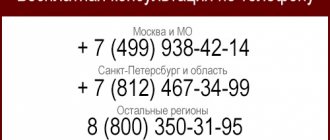Official list of persons from whom they will be able to take away their only living space
The Ministry of Justice clarified that in this case the market value of the property will be taken into account.
The final verdict on the seizure of living space will be made by the judge. In this case, he will necessarily take into account the fact whether the debtor still has any property or does not have it, as well as the amount of his total income.
If a decision is made to take away the housing from the borrower, the judicial institution must assign an amount of compensation with which the individual will be able to purchase another property.
This draft legislative act has been published and is open to public discussion. If he gets votes in his favor, he will be accepted. Such a law will apply only to relations arising after it enters into force. Exceptions here will be situations requiring compensation for harm caused to life and health, as well as alimony debts.
Can bailiffs take away housing and evict
For debtors, the issue of eviction from their only apartment due to debt to a creditor is relevant.
We suggest you familiarize yourself with Traffic at the intersection of traffic rules
Based on legal practice, resorting to such a harsh penalty is necessary in exceptional cases:
- the amount of debt on loan obligations has reached large proportions, exceeding the cost of the housing itself;
- if the borrower’s personality is regarded as a willful defaulter.
Grounds not allowing eviction:
- the only housing. This means not only the property owned, but also the fact that the borrower and his family have absolutely no place to live;
- minor children living with the debtor in the only home.
The only housing will be foreclosed on only if it is impossible to repay the debt in any other way. The bailiffs will make sure that the debtor has no other property or funds that can be seized to pay off the debt. At the same time, the debtor has a small salary, from which there is nothing to deduct according to the writ of execution.
Cases in which bailiffs can seize real estate
Often, many people confuse the concepts of foreclosure on property and seizure of real estate. They have different concepts. In the first case, the debtor is evicted from the living space, and it is put up for public auction. The amount from the sale of real estate will be used to cover debts.
Arrest implies the imposition of restrictions due to which the debtor will not be able to dispose of housing. At the same time, he has every right to live in it. You can replace the foreclosure of real estate with its arrest in the following cases:
- If the defaulter complies with all the rules of living in the apartment.
- If the debtor specifically avoids paying existing debts.
- If there is a need to prevent the occurrence of various real estate transactions by the debtor.
A certain share of the living space may also be subject to seizure. Here the bailiff must appeal to the court. The judge will decide on the allocation of a specific share of the debtor in kind. In other words, he will indicate the part of the apartment, its area and purpose. Based on this document, a resolution and act will be drawn up during the seizure process.
What's wrong?
If the court decides to foreclose on the property, it will be sold.
The proceeds from the sale will be used to pay off the debt, enforcement fees and legal costs. To prevent debtors from being left on the street, after the sale they will in any case receive money to buy housing at the minimum rate for all family members. That is, a family with two children will be able to buy some housing, even if the apartment does not cover the amount of debt. The Ministry of Justice proposes to foreclose only on those properties whose area is 2 times larger than the standard norm and whose price is 2 times more expensive. That is, if the debtor does not pay the loan or alimony, but lives in luxury, his home may be put up for sale in order to pay off the debts. The difference will be refunded.
The bill is undergoing public discussions.
How is a single residential premises seized?
A decree to seize the debtor's property is issued at the request of the applicant or government agency. After which it is transferred to the bailiff service, which will seize it and will deal with its implementation in the future.
Note! A citizen should not be afraid of various calls from credit institutions demanding that they leave their property. Collection of property can only be carried out by bailiffs, the same applies to eviction from an apartment.
The classic process for seizing real estate is as follows:
- The bailiff notifies of a court order, according to which the debtor's property will be seized.
- Initially, all bank accounts of the defaulter are seized. If there are not enough funds for them, then the right to arrest may transfer to other property, including living space.
- The bailiff personally comes to the defaulter. An act will be drawn up on the spot in the presence of witnesses.
In the process of repossession of real estate, it is necessary to indicate to whose benefit it will then pass (address and contact details of the institution), as well as who is carrying out the procedure (last name, first name and patronymic of the employee). At the end, it is necessary to put the signatures of all participants in the process. Then the bailiff must make a photocopy of the document: one copy must remain with the defaulter, and the second must be given to the lender.
This is important to know: Application for child deduction: sample 2020
As we said above, arrest is not a reason for eviction from an apartment. The debtor and his family have every right to live in it. The main purpose of arrest is to avoid various manipulations with real estate: sale, exchange, donation.
Expert opinion
Mikhailov Evgeniy Alexandrovich
Teacher of civil law. Lawyer with 20 years of experience
If an individual owns several properties, the bailiff can seize one of them. Subsequently, it will be sold at public auction to cover existing debts.
In what situations can a debtor lose his real estate?
The Ministry of Justice is currently considering changes to the bill. If they are approved, the defaulter may lose his only living space. The following persons will have to part with their apartment:
- Who avoid paying alimony by all means.
- Who are obliged to compensate for financial damage caused to life and health, as well as as a result of criminal acts or in the event of the loss of a breadwinner.
Important! The total amount of debt should not be less than 200,000 rubles and be commensurate with the value of the property. The area per person must also be taken into account here - more than 36 square meters.
For example, if a defaulter has a small one-room apartment, then he may not be afraid of losing it. But if he owns spacious apartments, then they can be confiscated. In this case, he will be given real estate, but of a smaller area.
But this bill is still only under consideration. Let's take a better look at real cases when you can lose your only home.
Mortgage credit lending
A fairly common occurrence when you can lose real estate is mortgage lending, namely non-payment of installments on it. In this situation, the credit institution has the authority to sue the defaulter in court with a demand to seize the living space in order to pay off the resulting debt. It does not matter here whether the debtor owns several apartments or only one. But for a defaulter there are still certain conditions for eviction:
- You cannot evict a person from an apartment if the total amount of debt is less than five percent.
- Payments are overdue for less than three months.
Expert opinion
Mikhailov Evgeniy Alexandrovich
Teacher of civil law. Lawyer with 20 years of experience
Let's look at an example: a person cannot pay mortgage payments because he lost his permanent job. Because of this situation, he owed the credit institution an amount of 40,000 rubles. The bank filed a lawsuit against the debtor to collect the mortgaged apartment, the cost of which is 2,000,000 rubles, against the debt. But the judge rejected the claim because the amount of debt is much less than the value of the property.
In the life of every person there are various unpleasant moments: loss of a job, illness, etc. In such situations, it is recommended not to hide from creditors, but with their participation to look for ways out of a difficult life situation. The best option here is to contact a banking institution. Here you can submit an application:
- For debt restructuring. Here you increase the mortgage repayment period by reducing monthly payments.
- To provide “mortgage holidays”. Here the credit institution exempts the person from payments for a certain time and does not charge interest for this.
This is important to know: 1st, 2nd and 3rd disability groups: when they give, how to get, benefits
Not long ago, the State Duma adopted a bill on providing “mortgage holidays”. Here, borrowers will be able to take out a certain interval in which they do not need to make monthly loan payments. The maximum period is 6 months. At the same time, it became possible to change the payment schedule.
After accepting the application, the bank issues official approval for the deferment of contributions. And then citizens can switch to a new payment schedule.
It is also possible to take out another loan against the same mortgaged property. But first, make sure there are no provisions in the first mortgage agreement that exclude this right. In this case, you can pay off the debt in one bank and pay with another.
Child support debts
Seizing the property of a person who is trying in every possible way to hide from alimony is a very realistic measure. If the total amount of debt is comparable to the value of the debtor’s living space, then a bailiff can easily do this.
For example: a parent has not paid child support for a long time. As a result, he accumulated a debt of 900,000 rubles. He has no other property besides the apartment. The bailiff sends an official request to Rosreestr. There he learns that not long ago the debtor received an apartment under an inheritance agreement. Its cost is comparable to the amount of debt. Here, the bailiff seizes the property and then puts it up for auction in order to pay off the debt.
Legal aspects of the case
To understand this difficult topic, let's start the conversation with the conditions established by law. Current realities are such that the debtor risks losing his own living space if the court recognizes the expediency of such a measure . However, there are nuances here. And to answer the question whether the apartment you live in can be taken away for debts, let’s look at the specific current standards.
The issue of forced collection of real estate for debts to the bank is an important topic for discussion among creditors due to innovations in legislation
So far, creditors rarely take the chance to compensate for material damage at the expense of the debtor’s housing. This point is explained by the need to wait for a court decision, and the judge often takes the position of a debtor citizen. After all, the amount of arrears on consumer loans is 3–5 times lower than the nominal price of real estate. In addition, the procedure also involves payment for the functions of an appraiser or financial attorney.
Thus, the creditor suffers material losses already at the stage of the proceedings, without clear guarantees of a positive decision. In addition, until recently it was impossible to select a single property.
However, today a bill is ready that has caused a resonance among Russians. This refers to the likely “cutback” of the defaulter’s living space to the minimum established by law. Moreover, we are talking about the only housing of a citizen. True, there are no serious reasons for panic yet - after all, the draft establishes a clear list of cases when such court decisions become a justified action.
Today, the “exchange” of a single apartment to pay off debt has become a reality
To understand the nuances of this topic and answer the question of whether the only home can be taken away for debt on a loan, it is appropriate to clarify certain provisions of the scandalous innovation. Let us note that previously, in the high-risk zone there was property under collateral, including houses . This point is an important aspect for people who, without thinking, take out a loan, securing the deal with their only home.








